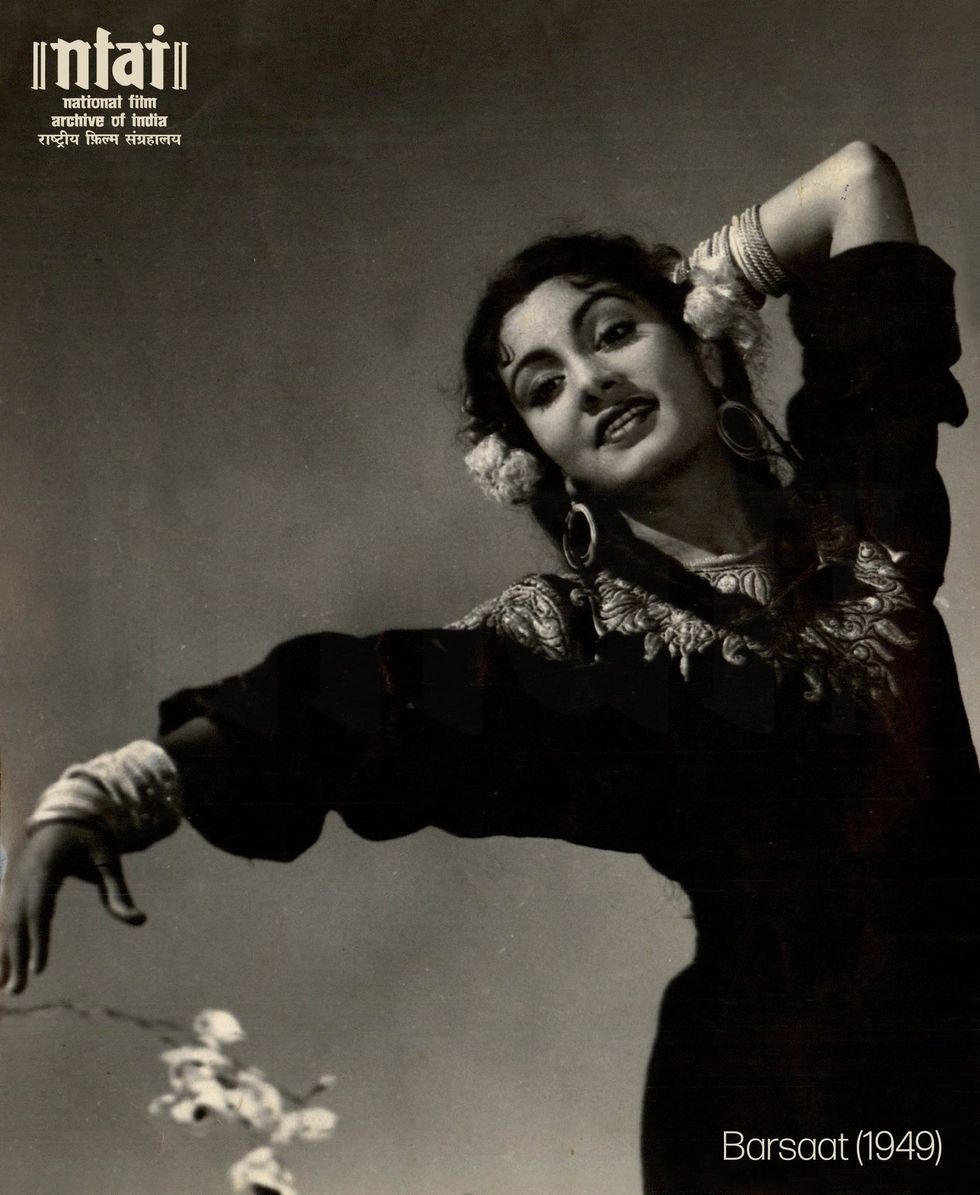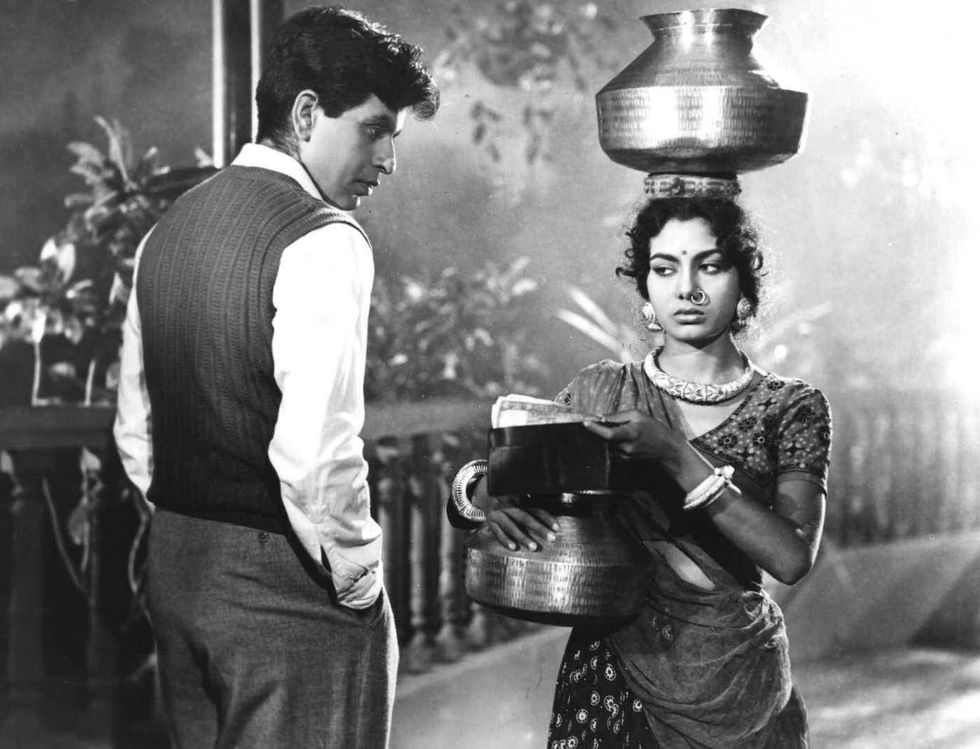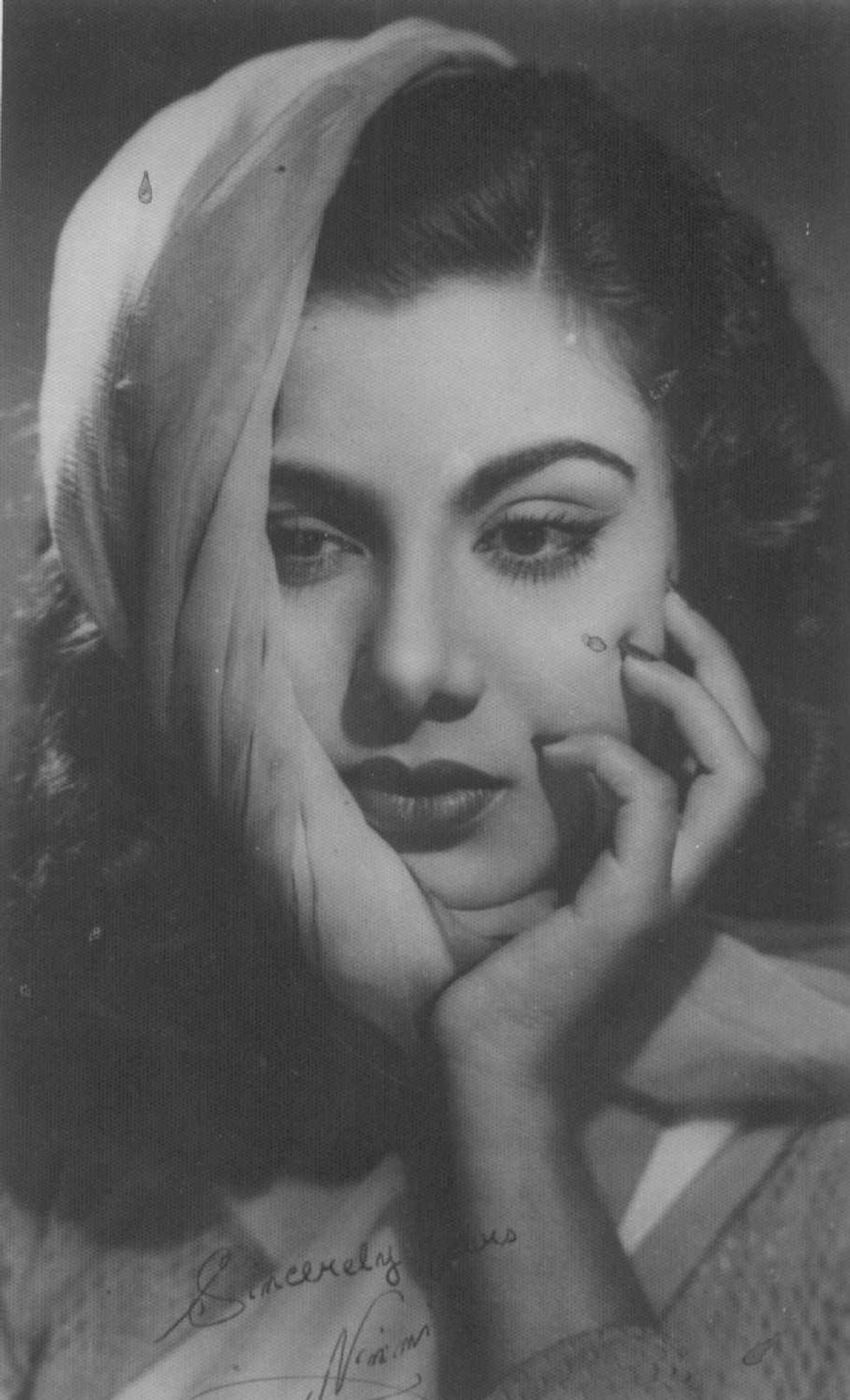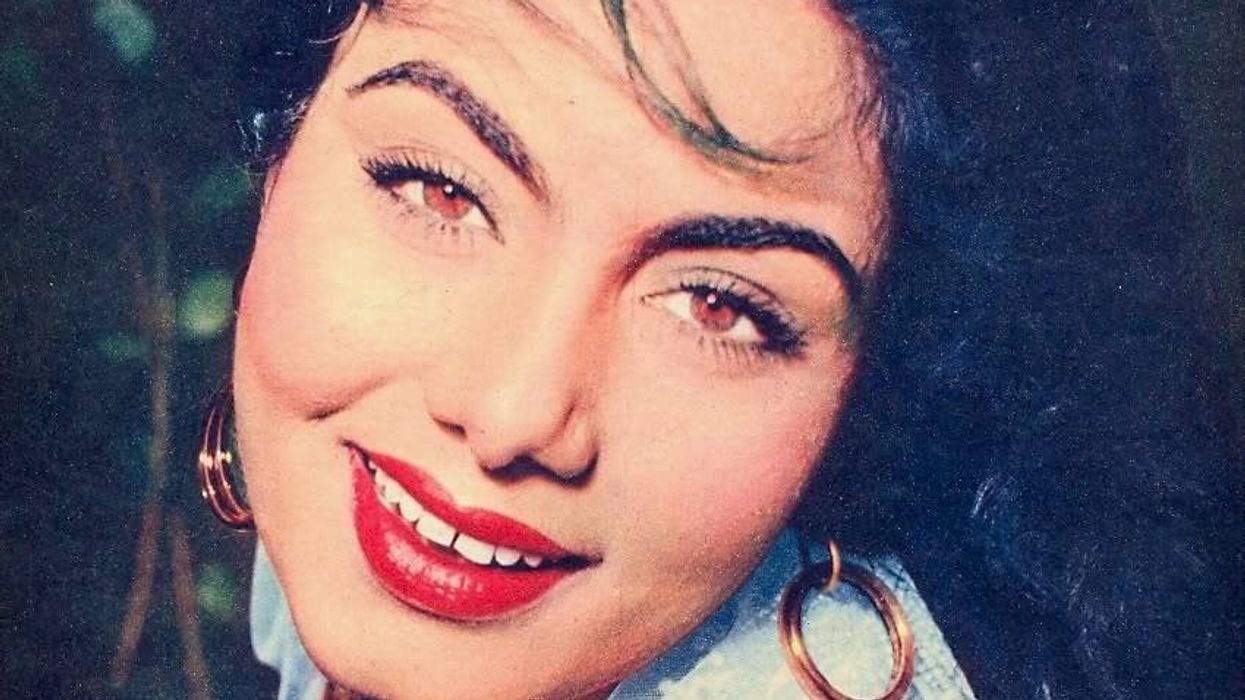WHETHER it was by making a mark in magnificent classics, or starring alongside the biggest stars, Nimmi established herself as one of Bollywood’s greatest ever leading ladies.
She earned the nickname ‘unkissed girl of India’ after an encounter with a Hollywood icon, starred in Hindi cinema’s first technicolour film, and even helped finance the Oscar-nominated classic Mother India when it ran into trouble.
Eastern Eye marks her death anniversary on Tuesday (25), as well as her birth anniversary last month, by telling the late cinema icon’s story – from humble beginnings to greatness.
The actress was born on February 18, 1932, as Nawab Bano in Agra to a Muslim family.Her mother, Wahidan, was a courtesan, dancer, and singer with ties to the film industry, including working with ace filmmaker Mehboob Khan in the 1930s. Her absentee father, Abdul Hakim, lived in another city with a separate family and gradually lessened his contact. When Nimmi was just 11, her mother suddenly died, and she was sent to live with her maternal grandmother in Abbottabad, near Rawalpindi.
During Partition, they moved to Mumbai and settled in the house of Nimmi’s aunt Jyoti, a former actress, who was married to popular singer, actor, and musician GM Durrani. Nimmi and her grandmother stayed in the spare room.
Nimmi once recalled: “It was comfortable. But the toilet was outside. My servant would stand in the queue and call out when my chance came.”
Her late mother’s friend, Mehboob Khan, invited the teenager to watch the shooting of his movie Andaz (1949), which starred future superstars Dilip Kumar, Raj Kapoor, and Nargis. Raj Kapoor, working on his ambitious 1949 film Barsaat at the same time, asked Nimmi to audition after speaking with her on set. Nimmi had said: “A few days after our meeting, he sent across a posh car and asked me to come for an audition. I was so nervous that I started crying during the test. Raj-ji thought I was such an emotional artist.”
Raj Kapoor made Nimmi comfortable by getting her to tie a brotherly rakhi on his wrist, a tradition she continued every year until his passing 40 years later. He rechristened Nawab Bano as Nimmi and cast her as a second lead in Barsaat, which he was producing, directing, and starring in alongside Nargis. The film became a massive success, and Nimmi was flooded with film offers. She honed her acting skills and embarked on a magical cinematic journey, starring in a series of successful films.
She followed up hits like Banwra (1950), Sazaa (1951), and Deedar (1951), by being cast opposite Dilip Kumar in Bollywood’s first technicolour movie Aan (1952). The swashbuckling film, which was released worldwide, became Bollywood’s highest grosser at the time.

This included a lavish London premiere, where an English version entitled The Savage Princess was released and attended by major international stars. At an after-party, Hollywood superstar Errol Flynn attempted to kiss her hand, but she pulled it away, exclaiming, “I am an Indian girl, you cannot do that.” That incident made worldwide headlines, and the press dubbed Nimmi as the ‘unkissed girl of India’.
During the London premiere, she received multiple Hollywood offers, including one from the famous filmmaker Cecil B DeMille, which she declined, choosing to focus on her thriving career in India. Nimmi had recalled: “I was offered four big films opposite major heroes. I don’t know what they liked in me. Mehboob Khan had said, this is a major opportunity. We can leave you in Hollywood, and you’ll be looked after. Don’t think you have to return on account of us. I said, I can’t do these kissing scenes. Please take me back to India.”
Nimmi continued signing major film projects, including ones where she received top billing, like Alif Laila (1953). Her willingness to take on challenges was evident in her role in Amar (1954), alongside Dilip Kumar and Madhubala. The film was way ahead of its time, addressing the controversial subject of rape. Her performance was highly praised, and the movie remained a personal favourite of ace director Mehboob Khan, among his own productions. She also took on the controversial role of a prostitute in Char Dil Char Raahen (1959).
She both acted in and produced the movie Danka (1954) and delivered a dynamic double role in the Les Misérables-inspired Kundan (1955). Nimmi found further success in films such as Uran Khatola (1955), Basant Bahar (1956), Bhai-Bhai (1956), and Sohni Mahiwal (1958).
When her mentor, Mehboob Khan, ran into financial trouble with his ambitious epic Mother India (1957), Nimmi was one of the first to lend him money to complete the project, which went on to become the country’s first Oscar-nominated film. Having become selective with her roles, Nimmi turned down Sadhna (1958), which became a huge success, earning her replacement, Vyjayanthimala, a Filmfare best actress award.

Nimmi was also offered the lead in the super-hit romantic drama Mere Mehboob (1963), but she opted for the performance-driven role of the sister, believing it to be more important. She also turned down the spooky drama Woh Kaun Thi (1964). Both films became turning points for her replacement, Sadhana, who used them as stepping stones to superstardom. Nimmi had explained: “I refused films in the hope of getting married. I even refused Saraswati Chandra though my costumes were ready.”
By the early 1960s, Nimmi decided to slow down and planned to finish her career with a lead role in Love And God, which was set to be ace director K Asif’s next film after his record-breaking historical epic Mughal-e-Azam. However, after the death of her co-star Guru Dutt and Asif, the film was never finished, and an incomplete version was released in 1986.
She rounded off her career by playing a blind girl in Pooja Ke Phool (1964) and a mute wife in Akashdeep (1965). She retired from acting after marrying writer S Ali Raza in 1965.

Nimmi had hoped he would go on to become a successful writer/director, but he lacked the drive and all-round talent to achieve that. She had said in an interview: “I wanted to launch my production house. I wanted Raza saab to be a director like Kamal (Amrohi) saab. I was ambitious, he was the opposite. But with time, I resigned. I didn’t want trouble in my marriage.”
The couple did not have children and adopted Nimmi’s sister’s son. While Raza directed a few films, his career faltered. Nimmi later admitted to regretting leaving films at a relatively young age. Her husband died in 2007.
After a prolonged period of poor health, Nimmi passed away on March 25, 2020, aged 87, in a Mumbai hospital. She had once said: “I was never satisfied and always felt I could do better.”
Do you Know ?
■ Nimmi sang her own songs in the film Bedardi (1951), in which she also acted.
■ Her nickname from a young age was Lali.
■ Famous film producer Ismail Merchant developed a friendship with Nimmi when he was 13 and was inspired by her to pursue a career in cinema.
■ Nimmi revealed that her pioneering technicolour film Aan was simultaneously shot in black and white as a backup.
■ Nimmi first saw her husband in a photograph hanging on a studio wall and was introduced to him by comedian Mukri.
■ While making his epic romance Mughal-eAzam, K Asif had planned to make a version of Laila Majnu with Nimmi and Bharat Bhushan in the lead roles.
■ Her 1964 film Pooja Ke Phool was a remake of the 1961 Tamil drama Kumudham.



